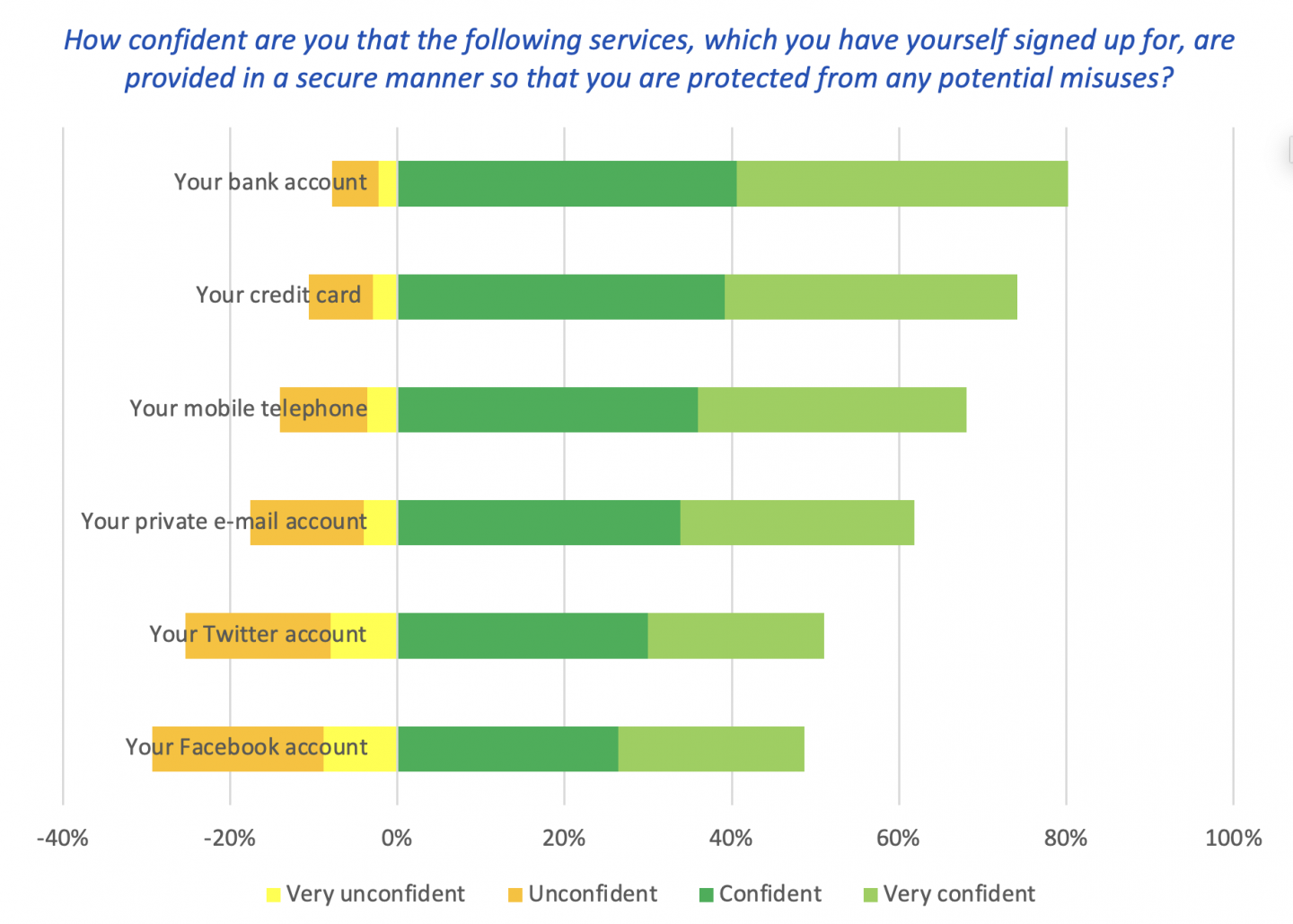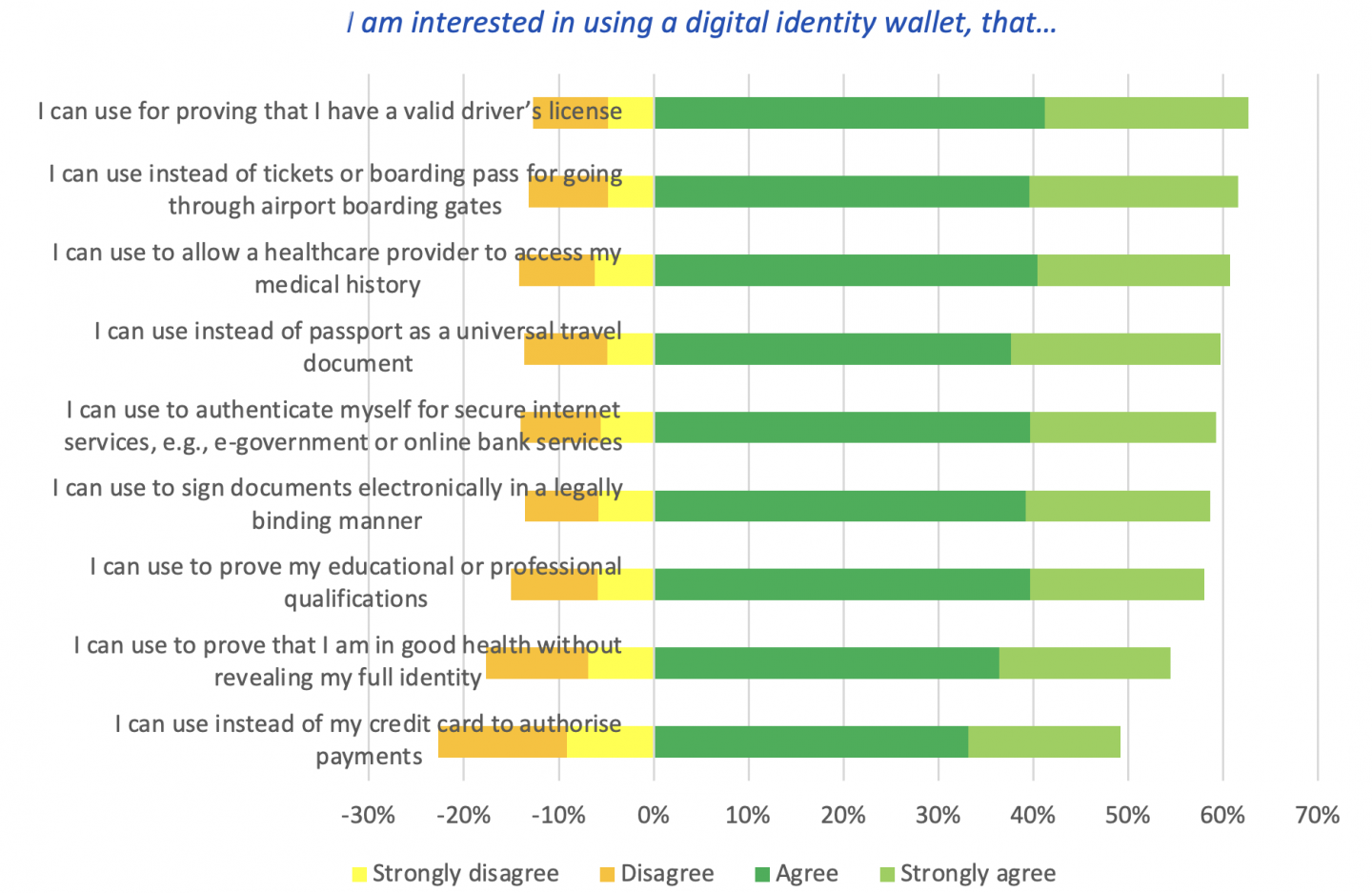One of the primary responsibilities of the iMARS project is to ensure that iMARS technologies, both in their core and in their broader deployment, are in accordance with and fulfil EU legal, ethical, privacy, and data protection criteria. Another benchmark that iMARS sets for itself and its research is to be in line with societal expectations and achieve their acceptance. To accomplish that goal and provide guidelines and best practices, a group of researchers led by the Institute of Baltic Studies conducted an analysis of societal acceptability of iMARS in 2021-2022.
The key objectives of analysis were to determine how frequently identity documents are misused, how these misuses affect citizens’ confidence in their identity documents, and which novel means of checking and proving one’s identity are societally more acceptable, in order to improve the performance and adequacy of the iMARS technologies.
To this end, a detailed sociological survey was carried out that collected information on the public perception in different socio-cultural contexts in Europe, namely in France, Germany, Italy, Spain, the United Kingdom, and, for comparative purposes, the United States of America.
The societal acceptability study found that during the period of previous 36 months, 16% of respondents reported that someone used or attempted to use one of their identification documents or electronic identity solutions without their consent. Despite respondents’ experiences with (attempted) exploitation of their personal information, their trust in government-issued identity documents remains high. Likewise, vast majority of the respondents are confident that their bank accounts and credit cards are secure. However, there is a lot of scepticism about security of social media accounts, such as Twitter or Facebook.

On the other hand, the study also revealed that there is a strong interest in using digital identity wallets, i.e. a smartphone apps that could be used to establish one’s identity. There is a broad interest in the various functionalities that digital identity wallets can offer. These include verifying one’s driver’s license, replacing the passport as a universal travel document, establishing one’s identity online or electronically signing papers.

Notably, the agreeability of use of artificial intelligence in checking the identity of individuals remains a challenging topic. 30% of the respondents remain undecided on desirability of the use of such technologies. This is most likely due to the novelty of the topic and insufficient understanding of the potential consequences of the technology use. The risks that are involved in using artificial intelligence for verification identity and the related mitigation measures, should thus be carefully explained to the citizens before actual adoption of new technologies.
Ultimately, the societal acceptability analysis found that there is a sufficient public support for the adoption of the technologies that will be developed within the iMARS project. However, the purpose and the intended use of any personal information, such as facial images, has to be carefully explained to the public; and fallback procedures should be put in place to correct for possible mistakes in automated decision making. Moreover, independent oversight of the actual use of such data must be ensured to bolster privacy protection and to avoid any discrimination.